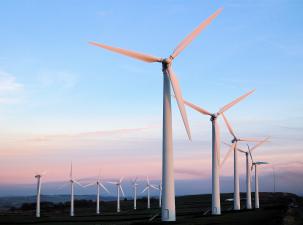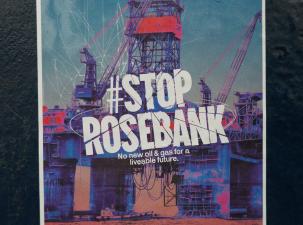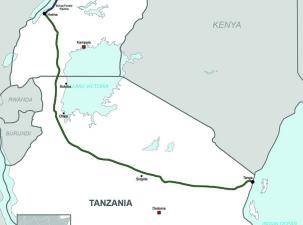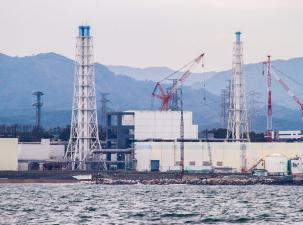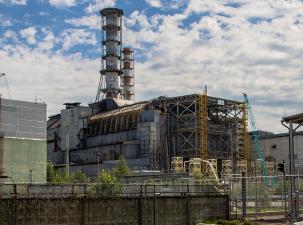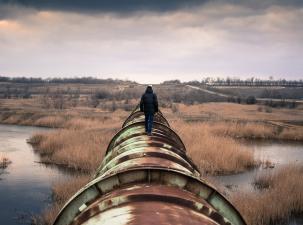Energy
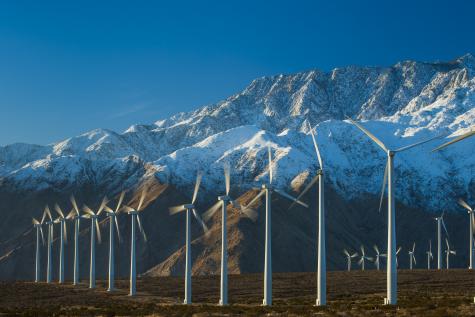
➡️ ENERGY - The Fossil Fuel Industry & Renewable Energies
Energy is the backbone of development, a strong economy, poverty alleviation, improved living standards, and has become a basic human right. It powers transportation, communication, technology, medical care, education, food systems, and manufacturing.
Despite this, 13% of the world still do not have access to electricity, and 40% do not have access to clean fuels for cooking. For those with access to energy, energy poverty is a very real issue. Rising inflation and cost of living, even in wealthy countries, have pushed energy bills to the point where people must choose between food and warmth.
The source of our energy is a contentious issue, with 80% of our energy deriving from non-renewable sources and the demand for energy ever increasing. Fossil fuels are by far the largest contributor to the global climate crisis. Energy production accounts for 75% of all greenhouse gas emissions and 90% of all carbon dioxide emissions.
Jump straight to our resources on ➡️ Energy
Explore our comprehensive guides on -
-
Fossil Fuel Divestment & Ending Subisides
-
Improving Energy Efficiency
-
Energy in Developing Countries
For critical analysis and updates from experts, activists, and NGOs, follow our excellent Twitter lists on Renewable Energy, Fracking, and Fossil Fuel Divestment.
German speakers should check out our partner site, Bessere Welt Info where you will find a further 9,000 links on Energie from a European perspective.
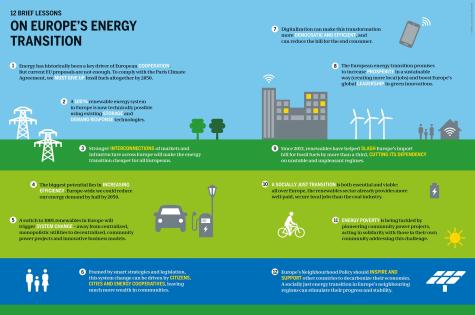
What is the Energy Transition?
Since fossil fuels are the biggest contributor to climate change, world leaders and big businesses are under pressure to enforce and support a shift from fossil fuel energy production to clean renewable energy sources.
Many factors are at play, and pressure from profit-hungry oil, gas, and coal giants is severely hindering progress. Corporate greenwashing has been used as a tactic to distract the public from the reality of their business and allows them to continue operating with impunity. Climate denial and the withholding of key scientific findings have allowed Big Oil to continue upscaling operations. Companies such as ExxonMobil, Shell, and BP have kept this dirty secret since the 1970s, long before the public was made aware of the consequences of unchecked fossil fuel energy production.
Governments spend a staggering $7 trillion every year on subsiding the fossil fuel industry. These subsidies are one of the biggest barriers preventing the shift to renewable energy sources. They are designed to protect consumers by keeping prices low, but in reality, they create higher taxes, lower public spending, and enable unchecked pollution.
Air pollution from fossil fuel extraction and burning is now responsible for 1 in 5 deaths worldwide, the equivalent of more than 8 million people per year. In the U.S. alone, cutting air pollution from fossil fuel combustion would save 50,000 lives a year and provide $600 billion annually in health benefits.
Devastatingly, climate injustice means that those who are affected first and most severely are the nations and communities that contribute least to its causes. Developing countries which support higher populations of low-income and disadvantaged people are on the frontlines of climate change and are the least able to protect themselves. Countries paying back their climate debt is a fair solution to address this injustice, which will help fund adaptation and mitigation efforts.
We MUST switch to clean energy sources and commit to achieving the global climate goals set out in the Paris Agreement - massive funding and investment into the renewable energy sector is vital and urgently needed. In order to limit global warming to 1.5°C, the world needs to triple its renewable energy capacity by 2030.
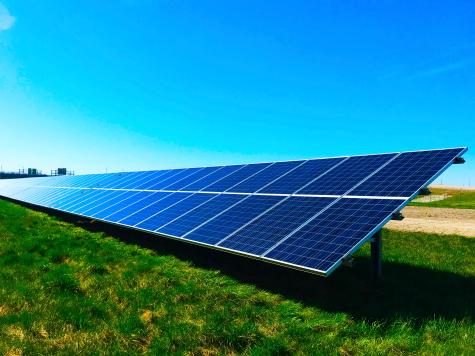
What Are Renewable Energies?
Switching to clean energy sources not only addresses climate change but also benefits our health and the air quality of our planet. It also prevents further destruction and pollution of our precious ecosystems.
Currently, 20% of our energy is generated by solar, wind, and hydropower. Not only are these energy sources clean, they are also sustainable. Unlike fossil fuels, the supply of renewable energy will never run out.
Only five countries produce all their electricity from renewable sources, mostly from hydroelectricity - Albania, Bhutan, Lesotho, Nepal, and Paraguay. Other countries setting the example are Costa Rica, Sweden, Iceland, Germany, Uruguay, Kenya, Morocco, New Zealand, and Norway. They are all proving that the transition is possible.
The case for the electrification of our energy systems is a key climate solution. Replacing old technology with electric versions, such as electric cars and heat pumps, allows us to utilise renewable energy easily and affordably.
-
Solar energy is the fastest-growing renewable energy sector. It is clean, has created a huge number of jobs, the panels are long-lasting and can function for decades, and once retired, can be recycled and repurposed. Solar electricity generation is estimated to surpass gas by 2026 and coal by 2027.
-
Wind energy has proven to be cost-effective and sustainable. The world's potential for wind-powered electricity exceeds production. Wind is the world's leading non-hydro renewable technology. China is leading the way in both onshore and offshore wind power generation. In 2020, there was a 56% increase in global capacity from the previous year in this rapidly growing sector.
-
Hydroelectric energy uses dams and reservoirs to harness the power of water in motion. It is the most common form of renewable energy, again with China as the largest producer. 71% of all renewable energy is provided by hydropower, the largest in the world being the Three Gorges Dam in China, with generators big enough to produce a gigantic 22,500 megawatts of power. Due to its nature, hydropower is highly vulnerable to the effects of climate change, namely drought. Dams also cause large-scale displacement of communities, are expensive, and disturb large areas of natural habitat, affecting wildlife. Any investment in hydroelectric energy must be carefully considered.
Find further information on other renewable options such as biomass and biofuels, hydrogen power, and geothermal energy.
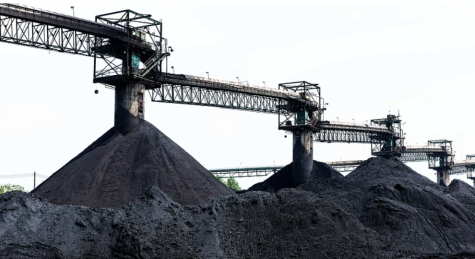
Can We Phaseout Big Coal?
Coal accounts for 40% of the total energy that we produce globally. It is by far the dirtiest fuel source. Coal mining has hugely detrimental effects on the environment and the communities in the surrounding areas. It causes contamination of water supplies, destroys landscapes, has long-lasting deadly health consequences for workers, and causes large-scale displacement.
Despite this, coal remains a popular energy source, particularly in developing countries, as production is cheap. More than 40 countries have recently committed to phasing out coal, including major coal-producing countries such as Canada, South Korea, Indonesia, and Vietnam.
Find comprehensive guides to the coal mining business in the UK, Germany, Australia, and Poland, as well as information on highly toxic fly ash and various NGOs fighting to end Big Coal.
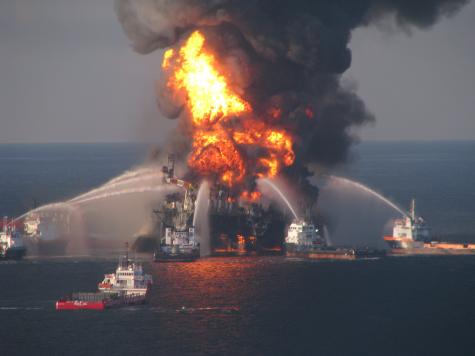
Big Oil vs The World
The term Big Oil is used to describe the world's largest oil and gas companies. They have massive economic power and hold substantial political influence. These super majors include ExxonMobil, Chevron, BP, Shell, Eni, and Total Energies.
88% of our planet's oil and gas reserves are controlled by the OPEC cartel and other state-owned companies, mostly in the Middle East. Despite the unprecedented need and global consensus to move away from fossil fuels, Big Oil profits reached their highest-ever levels in 2022 - $219 billion. This came at a time of spiralling inflation, a global cost of living and food crisis, increasing poverty and hunger, many national economic crises, and the aftermath of the Covid-19 pandemic.
Many of these issues were exasperated by the ongoing Russian invasion of Ukraine and the sanctions imposed on Russian gas and oil. This has pushed up energy prices dramatically, and rather than forcing countries to seek alternatives, it merely drove them to seek more gas and oil elsewhere for a higher price.
Politically, Big Oil influences governments by investing vast amounts into lobbying and political campaigns. These lobbyists obstruct and delay governmental action on climate change and spread misinformation through climate denial.
Big Oil is dirty. Deadly air pollution, contamination of soil and water sources, large-scale destruction of public lands, and habitat destruction are just some of this industry's human and environmental impacts. For more information, check out our section dedicated to fossil fuel companies – the bad guys.
Explore reliable information on fracking, gas flaring, windfall taxes, various pipeline protests, including EACOP, Enbridge line 3, Nord Stream, and Dakota Access. Learn about the disastrous effects of oil spills and how the oil industry is a leading cause of conflict.
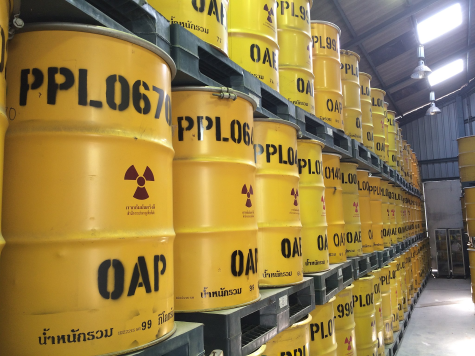
Can We Rely on Nuclear Power?
Nuclear power is often hailed as the clean and safe energy solution to decarbonising our energy sector quickly and avoiding climate change's worst effects. The reality, as proven in the disasters at Fukushima and Chernobyl, is very different.
In their very nature, nuclear power plants are unstable. They are vulnerable to natural disasters, use an enormous amount of water, and are wildly expensive to run. They can also become a target in war, for example, in the case of Zaporizhzhia in Ukraine.
Nuclear power is so risky that insurance companies worldwide do not provide coverage for nuclear power plants. The immense potential liability associated with nuclear accidents is simply too great. The costs of clean-up, health care for affected individuals, and compensation for property damage can reach astronomical amounts, and are always at the expense of citizens.
The unresolved issue of radioactive waste has yet to be solved by any government. Remaining dangerously radioactive for thousands of years, it is a huge problem for future generations. For this reason, nuclear energy can never be labelled as sustainable or green.
Nuclear fusion is another hot topic, and recent breakthroughs have pushed it back into the limelight. With high costs and slow progress, it is not viable compared to renewable energy sources.
Nuclear technology can be used to manufacture nuclear weapons, and governments use the guise of nuclear energy to mask nuclear weapons programmes. It is a dangerous distraction from renewable energy funding and installation.
For more information on nuclear energy, check out our country-by-country guide, where you can learn about the recent Fukushima wastewater release and controversial Iranian nuclear energy ambitions. Explore our section on risks and costs and find information on nuclear phase-out campaigns.
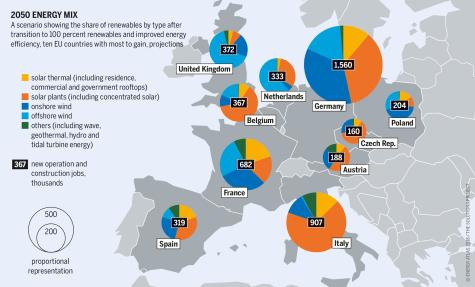
A Green Energy Transition for a Better World
The energy transition is essential to provide future generations with a planet worth living for, to commit to sustainability goals, and to ensure the protection of our environment, ecosystems, and health. Better World Info advocates for a just and timely transition that considers the needs of all and does not just line the pockets of fossil fuel tycoons.
As a participatory platform, we invite energy experts, antinuclear activists, and climate campaigners to contribute their extensive knowledge and share their top resources in the energy and electricity sector.
International cooperation and the sharing of technological advancements are crucial to promote the use of renewable energy worldwide and, in turn, reduce our dependence on fossil fuels. The energy transition not only offers the opportunity to mitigate the climate crisis but also to help the poorest nations develop faster and create a sustainable future for generations to come.
“Our oil-based society depends on non-renewable resources. It requires relentless probing into vast reaches of pristine land, sacrificing vital bioregions, and irreplaceable cultures… We must all move shoulder to shoulder in a unified front to show this administration that the true majority of people are willing to vote for a cleaner environment and won’t back down.” Environmental advocate Leonardo DiCaprio.
Better World Info is an open platform – We invite experts, NGOs, campaigners, and activists to contribute their knowledge and top resources! We are a constantly expanding, work-in-progress, committed to spreading reliable, critical, and investigative resources to help create an informed, knowledgeable, and curious world.
Author: Rachael Mellor, 25.09.23 (Updated 13.04.25) licensed under CC BY-SA 4.0
For further reading on Energy see below ⬇️
Info on Energy
- ENERGY in General[673]
- RENEWABLE Energies[2138]
- NUCLEAR Energy[3622]
- OIL, COAL & Mining[3442]
- FRACKING / Shale Gas & Oil[665]
Hot Topics
Twitter list
Tweets by @BetterWorldInfo/lists/renewable-energy
Hero of the Month
John Deutch
John Deutch is the former director of CIA and the author of "The Crisis in Energy Policy. He has been a member of the MIT faculty since 1970 and has published over 140 publications in physical chemistry, technology, energy, international security, and public policy issues.
